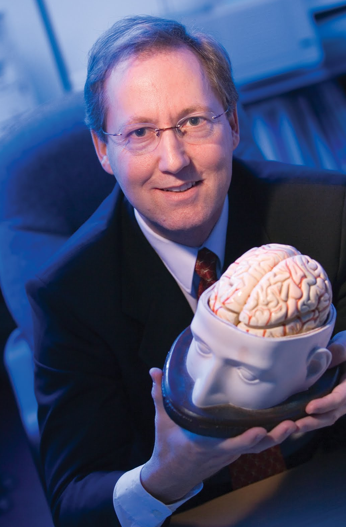Neuroscience: brains, monkeys and wheelchairs?
After reading a National Geographic article on brains, monkeys and wheelchairs, we asked Dr. Bryan Auday to comment with his thoughts on today’s news.
News Headline: Monkeys Steer Wheelchairs With Their Brains, Raising Hope for Paralyzed People
Media Source: National Geographic, by Dan Vergano @dvergano
Faculty Reflection on the News: Dr. Bryan Auday, Gordon College
“Monkeys learn how to steer a wheelchair by simply thinking about where they want to go; paraplegics are given the opportunity to walk again by using an exoskeleton that is controlled by brain signals that are associated with movement; it all sounds like wonderful material for a science fiction book—except these accounts are real and are taking place in several neuroscience labs on two continents.
Advances in biomechanical engineering, cognitive neuroscience, mathematics, and computer science have come together to offer hope to legions of people who suffer from spinal cord injuries. For decades scientists have had the ability to record brain waves (electroencephalogram-EEG) or even implant specialized arrays of electrodes into the cerebral cortex (the outer layer of the brain). The real stubborn problem that needed to be solved which was holding up significant progress was the decoding—and eventual training—of brain signals. It’s one thing to passively record brain signals; it’s a whole different set of problems to interpret what they mean. These eye-popping advances also demonstrate the powerful exercise of bringing together several scientific disciplines (biology, psychology, engineering, kinesiology, mathematics, etc.) to solve the most complex medical problems.
Fortunately, for Gordon students, we offer a concentration in neuroscience that will get them started on this intellectual, interdisciplinary journey.” —Dr. Bryan Auday
Dr. Bryan Auday, is director of Gordon’s neuroscience program and a professor of psychology
B.A. Biola University
M.A. California State University, Los Angeles
Ph.D. Colorado State University
Dr. Auday joined the Gordon faculty in 1986. His primary research and teaching interests are in neuroscience and cognitive psychology with a particular passion for trying to understand what brain waves (EEG) can tell us about memory and linguistic processing. In 2001 Dr. Auday launched Gordon’s neuroscience minor that offers an interdisciplinary study in psychology, biology, and kinesiology.
Learn more about Gordon College & neuroscience online >>
 The Bell
The Bell